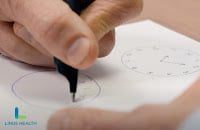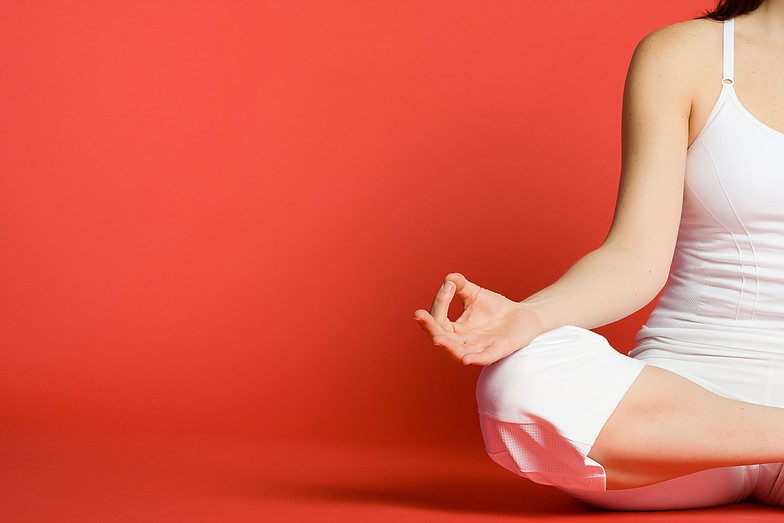Gratitude dispels negative emotions and may trigger better immune responses and general wellness.
Article by JL Nash
Count Your Blessings is something I heard as a child and I’d often think blankly, what did our grandparents know that we didn’t in telling us to count our blessings? Was it to make us shut up and put up with our situations in society? Or was there something deeper?
Apart from the words of prayers, gratitude didn’t feel that real to me. How could it? I was only 7 years old. Living in Zambia in the 70’s was a difficult time with poverty and tight budget living for all. It was only in the shadow of apartheid when I moved to South Africa when I was 11 that I realised how many blessings I did in fact have. They have never left me, the sense of society’s inequity and that life is hard. I learnt the meaning of gratitude then.
Practicing gratitude used to be very fashionable. I remember courses where you could be told how to count your blessings and how to practice gratitude, listing different things, people, places, situations, opportunities, etc. for which you could be grateful. List five things a day- saying them out loud, one of them suggested. List ten things a day in a journal, another advised. (Even my qigong heart routine involved specific movements for gratitude and love.) So many of us did this and reported that we felt a bit better, either reflecting on how lucky we were or how lucky we were not to be in a different pair of shoes. But how many of us continued to bother with gratitude?
The results have been in for a while now. Gratitude actually changes the brain. If it changes the brain to result in better mental health why aren’t we all doing it and if we are doing it, are we doing it correctly? A simple list of happy things is just not going to have the effects other methods have proved, e.g. letters and notes of gratitude have been recorded as highly effective in creating strong neural pathways.

This is not some hippy response or ideal. The Mindfulness Awareness Research Centre of UCLA says that gratitude CHANGES THE NEURAL STRUCTURES. How does it change the brain? Well, Zahn et al. (2008) showed that gratefulness feelings are actually originated in the anterior temporal cortex. They also established that there are neurochemical differences in people who practice gratitude compared with others who don’t. These chemicals have an effect on the Central Nervous System. They have a POSITIVE effect on all parts of you.
To put this into easier terms – gratitude, in the very least, the writing down of positive language based ‘grateful’ affirmations fires up new neural pathways in the brain. These pathways actually connect to the ‘bliss’ centre. This firing up stimulates dopamine and serotonin which are neurotransmitters associated with happiness. (Acts of kindness do the same thing). Gratitude is often referred to as a ‘natural antidepressant.’ With both these neurotransmitters doing their job, they increase our feeling of happiness that comes from within, not dependent on external stimulus (other people or things).
If we repeat an action then we reinforce the mental pathways of the behaviour, which means that these links grow stronger and stronger. Practicing gratitude on a daily basis teaches the brain to stimulate happy emotions and to do it quickly.
Gratitude dispels negative emotions.
Emotions are simply reactions in the neocortical regions of the brain (Moll et al. 2005). A study in gratitude found that participants who wrote gratitude letters instead of journaling their gratitude recovered sooner from their poor mental health and reported less anxiety and depression. How amazing – even if the letters were not delivered to anyone! Listing gratitude in a journal was not as powerful as invoking the emotions of a personal connection through a letter. Personal connections are about how we view our relationships and these live in the brain. When we activate these connections, we feel better which has a lasting effect.
Gratitude may trigger better immune responses and general wellness.
The more good hormones triggered the more effective the body is at regulating its immune system. A good immune system means better general health and the ability to fight disease and heal more quickly. Also, gratitude stimulates the hypothalamus which in turn (as well as many other things) controls sleep. A good sleep is far more feasible when the brain has been filled with gratitude. It’s all about those all-important neurotransmitters. With an increase in serotonin and dopamine, there has been a recorded reduction in cortisol. Cortisol is the stress hormone that can lead to heart disease and contribute to obesity and trigger panic attacks etc.
Gratitude is a medicine often underused. In ancient Rome, Cicero called gratitude the ‘mother’ of all emotions. If we can fire up this incredible, strong, positive emotion on a daily basis, what else might we do for our body and mind? Science is limited to describe what we have found. Perhaps, one day, we will be able to measure how gratitude affects the spirit.
There are so many anecdotes that describe how healing has occurred with gratitude. I am not proposing that gratitude is an alternative therapy for any type of healing – however, as an adjunct, it can really make a difference to the way we function on a daily basis and help us maintain not only a healthy mind but also a healthy body.
Go on – do it – and don’t just keep a list of stuff you are grateful for. Write letters and notes of gratitude, think of being grateful to others when you are exercising, focus on where /to whom you want the gratitude to go and you will have better results. DO IT EVERY DAY. Repeat, repeat, repeat and those neurotransmitters will work better and better.

And… thank you for reading this – I’m grateful you’ve taken the time to read it and I’m also grateful to be here.
About the Author
Jane Nash is a Psychotherapist, Clinical Hypnotherapist, NLP (Neuro-Linguistic Programming) Trainer & Master Practitioner, Master Hypnotist, Advanced EFT Practitioner and Forensic Investigative Hypnosis Trainer. Jane has a few decent degrees and diplomas. She is also a published poet and short story writer and writes a monthly column for iPinionsyndicate.com
Jane lives by the ocean, with her Australian hubster and Australian Cattle Dog and can be found knitting, playing the ukulele or deciphering Mahjong tiles depending on the day.
Online diploma courses in Holistic Therapies
Here at the School of Natural Health Sciences we have been providing a holistic education for over 24 years.
-
- Over 40,000 students have graduated from our school over the years – visit our Student Reviews Page to see what they have said about us!
- All our courses are accredited worldwide and once you have successfully completed your course, you can go on to practice professionally. See our Accreditations.
- We have over 60 holistic therapy courses on offer – visit our A-Z course listing page
The post Count your blessings… adopting an attitude of gratitude appeared first on SNHS - School of Natural Health Sciences.
Original Article










